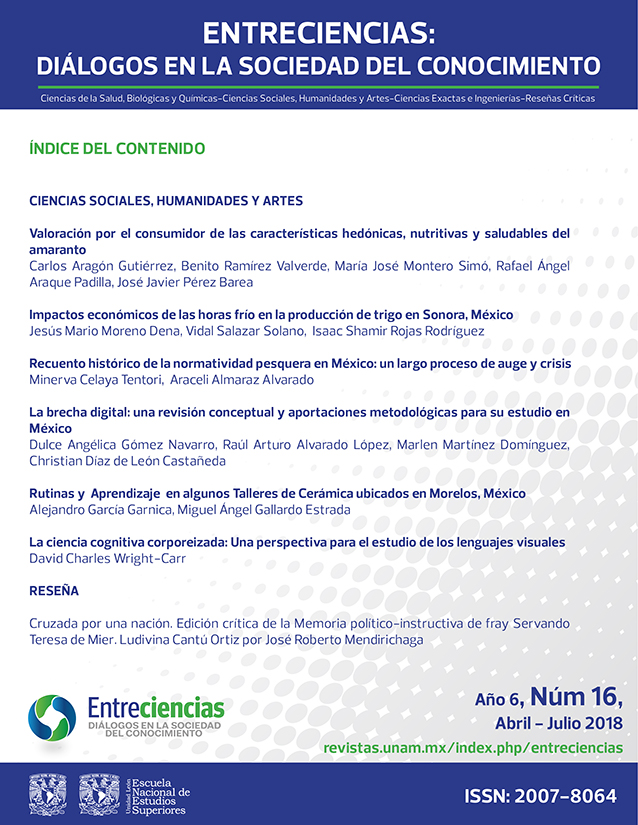Recuento histórico de la normatividad pesquera en México: un largo proceso de auge y crisis
Contenido principal del artículo
Resumen
La acuacultura se ha posicionado como una alternativa para cerrar la brecha entre la oferta y la demanda de productos del mar, incrementando así la seguridad alimentaria para muchos países. En México, sin embargo, su desarrollo ha sido limitado debido a la forma discontinua en que se han generado las políticas enfocadas a impulsar la actividad acuícola. Éstas, se han caracterizado por una ausencia en la institucionalización y reconocimiento de cada una de las fases de la acuacultura, así como en la aplicación de esquemas de apoyo específicos para cada una de ellas. A partir de un seguimiento histórico de la legislación y los instrumentos de la política de acuacultura y haciendo una triangulación de datos, analizamos los puntos sensibles para México. Nuestra principal conclusión es que las políticas de acuacultura requieren de esquemas integrales orientados a la creación de valor y reconocer el binomio acuacultura-biotecnología.
Descargas
Detalles del artículo
Citas en Dimensions Service
Entreciencias: Diálogos en la Sociedad del Conocimiento reconoce y respeta el derecho moral de los autores, así como la titularidad del derecho patrimonial, transferida de forma no exclusiva a la revista para su difusión en acceso abierto y su preservación, por lo que los autores que publiquen en esta revista aceptan las siguientes condiciones:
- Entreciencias: Diálogos en la Sociedad del Conocimiento por Universidad Nacional Autónoma de México se distribuye bajo una Licencia Creative Commons Atribución-NoComercial-SinDerivar 4.0 Internacional, la cual permite utilizar la información y los metadatos sin fines comerciales siempre y cuando se realice la citación correspondiente.
- Los autores tendrán el derecho de realizar la distribución no exclusiva de la contribución publicada en Entreciencias: Diálogos en la Sociedad del Conocimiento, es decir, podrán incluirlo en un repositorio institucional o darlo a conocer en otros medios digitales o impresos, siempre y cuando se indique que el artículo fue publicado por primera vez en Entreciencias: Diálogos en la Sociedad del Conocimiento, y además se incluyan datos como: autor de correspondencia, año, volumen, número de páginas, paginación electrónica y DOI.
- Los autores cuyas contribuciones sean aceptadas para su publicación deberán enviar la Carta de Cesión de Derechos en el formato llenado y firmado según corresponda, es decir, de un autor, o de dos o más autores.


